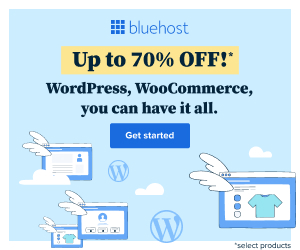[ad_1]

In today’s fast-paced world, event planning and management can be quite challenging, especially when they involve several stages and tasks with multiple team members.
Collaboration tools such as Google Workspace have revolutionized the way event planners work, making event planning more efficient and streamlined.
With a shift to remote working, event organizers need to find effective ways of communicating, collaborating with multiple teams, and making decisions quickly in order to ensure upcoming events go off without a hitch.
The rise in popularity of virtual events has brought about significant changes in the event industry, and event planners have had to adapt to this new reality to remain competitive. As reported by Sweap, 81% of event managers have adopted virtual events.
These challenges include keeping up with multiple stakeholders and ensuring that all their needs are met, as well as addressing technical difficulties, streamline event planning and management, engaging attendees, selecting the right platform, providing a positive attendee experience, and monetizing the event.
In this article, we are pleased to discuss how Google Workspace applications can help with event planning and management.
Challenges Faced by Event Planners

Event planning and management are complex and challenging tasks that require careful attention to detail, excellent organizational skills, and effective communication.
The use of online collaboration tools can help event planners overcome many of these challenges
The challenges that event organizers face during the planning and management phases include:
1. The hassle of coordinating with your team members
Without online collaboration tools, event planners struggle to coordinate with team members who are located in different locations and regions. This results in delays, miscommunications, and errors, to say the least.
2. Limited access to information
The help of online collaboration tools is crucial, which plays a big role for the event planners. Without these online collaboration tools, they will not have access to important information and data that aid them in planning and managing events effectively.
3. Limited ability to track progress
Event planning involves lots of different tasks and tight deadlines; tracking progress can be a real challenge without online collaboration tools. These online collaboration tools make sure everything is on track and due on time.
4. Inefficient communication
An absence of online collaboration tools and communication between team members and stakeholders can make everything painfully time-consuming. As we all know, miscommunications and errors can lead to delays.
5. Difficulty in managing documents
Event planning involves managing a lot of documents, which include contracts, schedules, and vendor agreements. Without these online collaboration tools, it can be rather difficult to manage these documents effectively and efficiently, resulting in confusion and errors.
6. Engagement and interactivity
Virtual events don’t have the same personal touch as in-person events, which makes it harder to engage and talk to people who are there.
Event planners need to consider creative ways to make virtual events more interactive, one of them being through live polls, virtual networking sessions, and gamification.
7. Attendee experience
Event planners need to take the attendees’ experience into consideration while planning virtual events. This includes everything from registration and onboarding to post-event follow-up.
Event organizers have the responsibility to ensure that attendees have a seamless and enjoyable experience from start to finish.
How Google Workspace Help Streamlining Your Event Planning & Management

Google Workspace is a suite of cloud-based productivity and collaboration tools that offers a wide range of apps for different purposes: Gmail, Google Drive, Google Docs, Google Sheets, Google Slides, and much more.
By using these tools, event planners can streamline communication, track progress, and manage documents effectively. This ultimately leads to an increased chance of holding a successful virtual event, regardless of its location.
Collaboration tools such as Google Workspace have several benefits for event planning and management, some of which include:
1# Real-time Collaboration
Collaboration tools open up more opportunities and possibilities, allowing teams to work together in real-time.
Removing the struggle of not being at the same location. Real-time collaboration enables teams to communicate and coordinate efficiently, which, in turn, increases productivity and saves time.
With the help of Google Docs, Sheets, and Slides, team members can work together on the same document simultaneously in real-time.
This significantly boosts productivity and helps reduce the time it takes to complete tasks by allowing immediate feedback and inputs, which promote collaboration among the team.
Google Workspace Applications: Google Docs, Sheets, Calendar, Slides
2# Increased Transparency
Collaboration tools provide a centralized platform where all team members can access project information, files, and documents. The additional increased transparency ensures that everyone is catching up and has access to the latest information and tasks.
Google Workspace allows event planners to share documents, spreadsheets, and calendars with ease with other team members and even stakeholders, which again, promotes transparency.
Ensuring that everyone is on the same page, reducing the risk of miscommunications.
Google Workspace Applications, Google Shared Drive, Docs, Sheets, Calendar, Meet
3# Better Communication
Effective communication plays a crucial part in event planning and management. Collaboration tools provide various communication channels, including: instant messaging, video conferencing, and email.
Making sure that the team members can communicate easily and swiftly with each other.
With tools such as Gmail, Google Meet, and Google Chat, event planners can communicate with team members and stakeholders in real-time, regardless of their location.
This allows for quick and effective communication, which is crucial for event planning.
Google Workspace Applications: Google Gmail, Meet, Chat, Calendar, Sites
4# Improved Productivity
Collaboration tools provide several features like task management, calendars, and project timelines that help teams manage their time and prioritize their tasks.
As a result, improved productivity ensures that the event planning and management process is completed efficiently and within the given timeframe.
Google Workspace provides a suite of tools that aid event planners in managing tasks, schedules, and making a better and smarter budget. This helps to reduce errors, save time, and increase productivity in general.
Use Google Calendar to schedule and send reminders for upcoming events in Singapore. Event organizers can make an event and invite as many people as they want. Those people will get reminders in their calendars.
Additionally, attendees can opt-in to receive notifications for upcoming events happening near them by using the “Discover” feature in the app.
Google Workspace Applications: Google Gmail, Drive, Docs, Sheets, Slides
5# Enhanced Security
Collaboration tools provide many types of security features, including data encryption, user access controls, and data backups. Securing your confidential information.
Google Workspace provides a high level of security to protect sensitive information, including the well known two-factor authentication, data encryption, and safe and secure cloud storage. Protecting event planners’ data and ensuring that it is not compromised.
Google Workspace Applications: Google Drive Encryption, Google Meet Security, Google Admin Console
6# Create Digital Presence
Google Sites allows event organizers to create professional-looking event websites and publish without any coding or design skills.
Once the website is created, event planners can promote their event on different social media platforms, incorporate email marketing, or use any other digital channels they desire.
They could choose to use Google Sites to share important information about the upcoming event as well, including the event schedule, location, speakers, and much more.
Integrate Google Sites with Google Forms to create registration and ticketing forms. This makes it simple for the attendees to sign up for the event and purchase tickets right there and then.
Google Workspace Applications: Google Sites, Google Workspace Marketplace (Google My Business, Google Analytics, Google AdWords, Google Search Console)
7# Build Engagement and Interaction
With Google Meet, webinars can be easily hosted, as well as collaboration and video conferencing with up to 100 participants per call.
They can utilize the audio-visual capabilities to create an interactive environment for everyone involved in the event.
Google Workspace also provides event planners with the tools they need to create engaging virtual events and webinars.
It offers collaboration tools such as Google Docs, Sheets and Slides on which attendees can easily make notes, share ideas, hold Q&A sessions, collect responses in real-time and comment on presentation slides in real-time.
By leveraging these tools, newcomers as well as experienced planners can create engaging virtual events that are sure to keep audiences engaged and entertained.
Google Workspace Applications: Google Meet, Forms, Jamboard, Chat, Calendar
All in all
Google Workspace is a powerful platform that enables event planners in Malaysia to create a personalized brand experience for their audiences on virtual platforms, no matter where they are located.
With Google Workspace, event organizers can create customized websites, documents, and presentations that are tailored to the needs of their customers or attendees.
Additionally, businesses can use Google Workspace to create and manage attendees’ profiles, keep team members on track and on time, and build relationships with event attendees.
Using these tools, businesses can provide an engaging experience and interactive virtual events for their attendees while also increasing brand loyalty and trust.
Related articles:
How Digital Marketing Agency Use Google Workspace the Most
Google Workspace (G Suite) vs. Microsoft 365 Comparison
[ad_2]
Article link





